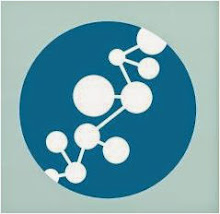
Looking at the OTC sales in Italy (Q1-2 2011) we can see that gastrointestinal health accounts for about 50%.
We can find a low dosed probiotic at 3° and 4° position, for about 4.9 million boxes and rectal glycerin formulations for constipation at position 9° and 10° for more than 3 million boxes.
Italians seems not much interested in quality looking at this data.
Infact they prefer to use a rectal formulation for the acute constipation instead of a prebiotic with adaptogen effects.
They ignore Ministero della Salute guidelines on the use of probiotics that recommend to use only live organisms and a dose of at least 10billion a day for the adults.
As usual, first 2 positions are strongly held by diclofenac and paracetamol brands that may have well known side effects on the gastrointestinal tract.
We find first antiacid at position 17° with 1 million boxes sold. Antiacids are generally safe but patients should not ignore possible interactions with frequently prescribed drugs like antibiotics tetracyclines and fluoroquinolones or bisphosfonates.
A recent study published on "Drug" described "Clinically significant drug interactions with antacids: an update"
The authors explain that antiacids-drug interactions are more frequent now that antiacids are sold without prescription and suggestions from health care professionals.
Antiacid-drug interactions can be more important if the antiacid is coupled with a proton pump inhibitor and the mechanisms can be a gastric pH-dependent by H2RAs and a cation-mediated chelation by antacids.
We can find a low dosed probiotic at 3° and 4° position, for about 4.9 million boxes and rectal glycerin formulations for constipation at position 9° and 10° for more than 3 million boxes.
Italians seems not much interested in quality looking at this data.
Infact they prefer to use a rectal formulation for the acute constipation instead of a prebiotic with adaptogen effects.
They ignore Ministero della Salute guidelines on the use of probiotics that recommend to use only live organisms and a dose of at least 10billion a day for the adults.
As usual, first 2 positions are strongly held by diclofenac and paracetamol brands that may have well known side effects on the gastrointestinal tract.
We find first antiacid at position 17° with 1 million boxes sold. Antiacids are generally safe but patients should not ignore possible interactions with frequently prescribed drugs like antibiotics tetracyclines and fluoroquinolones or bisphosfonates.
A recent study published on "Drug" described "Clinically significant drug interactions with antacids: an update"
The authors explain that antiacids-drug interactions are more frequent now that antiacids are sold without prescription and suggestions from health care professionals.
Antiacid-drug interactions can be more important if the antiacid is coupled with a proton pump inhibitor and the mechanisms can be a gastric pH-dependent by H2RAs and a cation-mediated chelation by antacids.


No comments:
Post a Comment